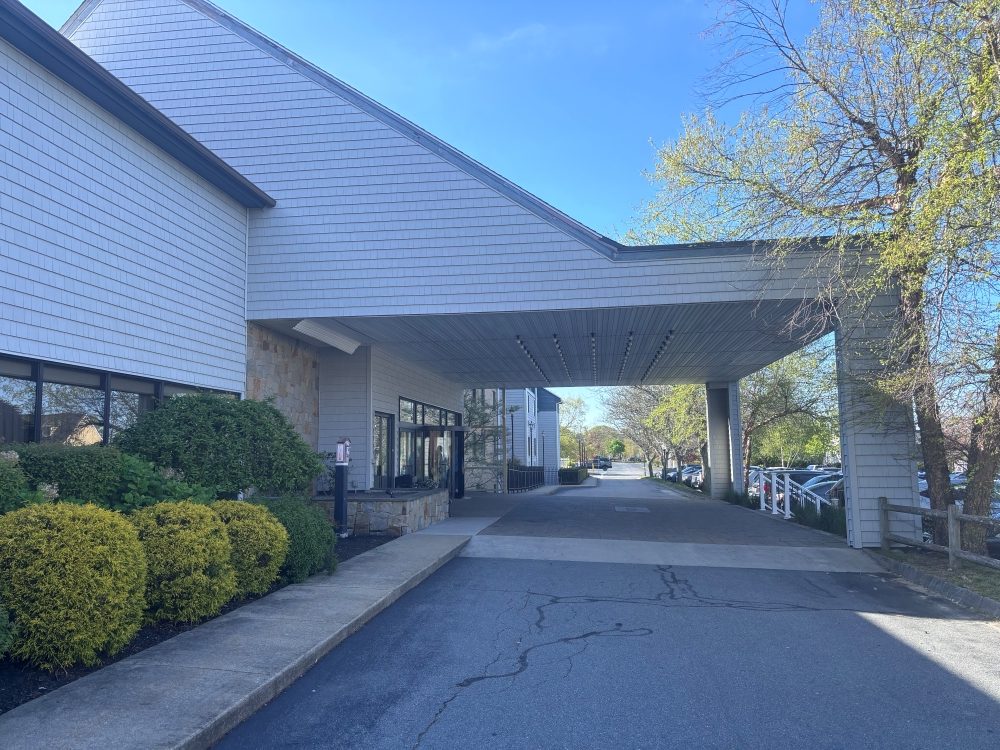It took nearly 20 years for James Barnes to win his freedom.
It took only minutes for him to lose it again.
Barnes, a convicted murderer out on parole, was arrested last week, accused of grabbing a young girl in a Plymouth hotel’s indoor pool.
He was swimming laps at the Hotel 1620 Plymouth Harbor — with black socks and a plastic bag covering his electronic ankle bracelet — when he allegedly touched a 13-year-old girl multiple times, including once inside her bathing suit, according to Plymouth police.
He stared at her without speaking, she told police.
On May 2, Barnes was sent back to jail — he’s now at the maximum security Souza-Baranowski prison in Lancaster.
He will be held there for 15 days on a parole warrant and then returned to Plymouth District Court to face charges of indecent assault and battery on a child, according to police spokesman Jason Higgins.
Peter Elikann, who represented Barnes before the parole board in 2015, said the allegations seem completely out of character for the man he knew.
“It seems inconceivable that James Barnes could have done this in light of the fact that he has a track record of decades of turning his life around and bettering himself,” Elikann said, adding that Barnes had no history of sex offenses “whatsoever.”
“I’m hoping that through the fair legal process he can establish his innocence if in fact he is so,” said Elikann, adding that he represented Barnes at the request of Barnes’s “supportive” wife.
Barnes, of Boston, who served 33 years in prison, was paroled in July 2022 on his sixth try and released in 2023.
In 1990, Barnes pleaded guilty to the Dorchester shooting and killing of Samuel Hernandez, who was once his best friend, according to parole board reports.
The alleged incident in Plymouth happened in February, but it took weeks for the police to put together the case. The police reports are heavily redacted, so the details are not entirely clear.
The girl and her family were enjoying a day at the pool during school vacation week, police reports suggest. They, as well as Barnes, were guests at the Hotel 1620.
At first, the girl’s mother was reluctant to contact police.
But over time, the alleged victim and her mother apparently changed their minds, notifying police on April 9 that they wanted to go forward with pressing charges, police reports said.
Plymouth police contacted officials from the state’s Electronic Monitoring Program, who were able to use GPS to determine that Barnes was the parolee
in the pool area on the day of the alleged incident.
His parole officer provided Plymouth police with a photo, which generally matched the description given by the alleged victim, police said.
On April 30, Plymouth detective Seth Johnson sought a criminal complaint against Barnes for indecent assault and battery on a child under 14 years old.
“Mr. Barnes reportedly touched (the victim) three separate times while staring at her, one of the times getting two fingers underneath the side of her bathing suit bottom,” Johnson wrote in his report.
“This act would be considered fundamentally offensive to a reasonable person. Mr. Barnes was 60 years old at the time… [the] victim was 13.”
Johnson said he didn’t try to speak to Barnes “out of concern that he would remove his GPS device to avoid potential reincarceration.”
Parole officials took Barnes into custody May 2, the day after Plymouth District Court clerk magistrate Adam Baler found probable cause that he had committed the crime, according to police reports.
If convicted, Barnes would serve the sentence ordered by the judge, and then appear before the parole board, which could require him to serve the balance of his life sentence in prison, allow him to return to the community on parole, or end his parole altogether, according to a parole board spokesman.
If exonerated, he would still have to appear before the parole board to argue for his release, the spokesman said.
Hotel officials declined to comment on the matter.

Parole records detail Barnes’s long history of criminal conduct and his more recent efforts to change.
He was 25 when he shot and killed 18-year-old Samuel Hernandez in May 1989, according to the parole board.
The men were arguing when a witness heard Barnes say to Hernandez “Watch your back.” The witness reported hearing a bang and seeing a flash. Hernandez fell to the ground and yelled “I’ve been shot.” He died the next day. Barnes fled, parole documents say.
His first parole hearing was in April 2004. In its denial decision, the board said Barnes had minimized the murder, was a disciplinary problem in prison, and was a risk to re-offend.
He tried again in 2004, 2009, 2010, 2015, and 2020. Each time he was denied, records show.
At his 2015 hearing Elikann argued that Barnes had undergone a transformation through his participation in programs addressing aggression and violence.
Barnes apologized to the Hernandez family and Elikann said his client was “very remorseful and acknowledged the negative impact his actions and lifestyle have had on his community.”
Born in Augusta, Georgia, Barnes’s mother died when he was an infant, and he was adopted by his aunt and uncle who moved to Roxbury when he was two. He graduated from West Roxbury High School in 1983. worked at the Four Seasons Hotel, security firms and a variety store in Roxbury.
But, the 2015 decision said, he “immersed himself in the illicit drug trade “selling grass at age 15 and crack when he was 17 or 18. He reportedly made $30,000 a week and had others working for him.
Before murdering Hernandez, he had racked up an extensive criminal history including convictions for assault and battery and armed robbery, parole reports said.
At a 2020 parole board hearing — his fifth — Barnes said that he and Hernandez had been friends, but Barnes retaliated after Hernandez allegedly blew out his window with some kind of gas bomb.
He said he never fired a gun before the day of the murder.
Again, the board denied his request, citing “problematic institutional adjustment.” The 2020 decision also said he “would often make threats and become assaultive with staff and was disrespectful toward women.” When the board asked him to explain his conduct, he said: “I was doing the best I could.”
Finally, in 2022, on his sixth try, the board changed course. In a decision dated July 5, 2022, it unanimously voted that he was a “suitable candidate for parole.”
Barnes had completed programs in “violence reduction” and “criminal thinking,” the decision said.
“He maintains a trusted position as a companion in the health services unit, the board wrote. “He has remained disciplinary-report-free” and has been in contact with several family members who will help him reintegrate into society.”
The board noted that it grants parole only if there’s a “reasonable probability” that the released offender will “live and remain at liberty without violating the law.
“After applying this appropriately high standard to the circumstances of Mr. Barnes’ case,” the decision said, “the board is of the opinion that Mr. Barnes is rehabilitated and merits parole at this time.”
Andrea Estes can be reached at andrea@plymouthindependent.org.

